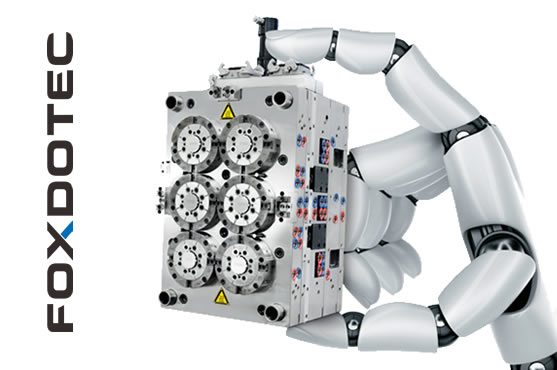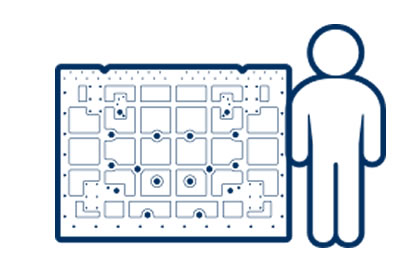Manufacture finished product through injection molding
Transform your vision into reality with our Injection Molding Solutions! From concept to finished product, our advanced technology delivers precision, speed, and quality every step of the way. Say goodbye to limitations and hello to endless possibilities. Take your manufacturing to new heights with our comprehensive Injection Molding Solutions!
From injection mold to finished product
"From injection mold to finished product" It involves designing and creating a mold tailored to the specific product's shape and size. Raw materials, typically plastic pellets, are melted and injected into the mold cavity, where they cool and solidify to form the desired part. Once cooled, the mold opens, and the finished product is ejected. mold is a tool used to make shaped objects. This tool is composed of various parts, and different molds are composed of different parts. It mainly achieves the processing of the shape of the object through changes in the physical state of the molded material.
Precision Injection Mold


Molds play a crucial role in the industrial sector
Importance of Molds in the Industrial Sector
In the manufacturing process from injection mold to finished product, molds play a crucial role in the industrial sector. Here's why molds are significant:
- Production Efficiency: The design of injection molds directly affects production efficiency. Well-designed molds can minimize production cycles, increase productivity, and reduce manufacturing costs. They significantly shorten the manufacturing time of products, enabling companies to bring products to market faster.
- Product Quality: Mold quality directly impacts the quality of the final product. High-quality molds ensure dimensional accuracy, surface quality, and consistency of products, thereby enhancing product quality and reliability. Excellent mold design also reduces product defects and scrap rates, lowering quality control costs.
- Product Innovation: Molds play a vital role in product innovation and design. By optimizing mold design, companies can develop more complex and innovative products to meet market demands and stand out in competitive markets.
- Cost Control: Mold design and manufacturing costs are essential components of injection molding production. By optimizing mold design and material selection, companies can reduce production costs and improve production efficiency. Additionally, high-quality molds can reduce maintenance and replacement costs, lowering production downtime.
- Process Stability and Reproducibility: The stability and reproducibility of molds are crucial for maintaining stable production processes. Excellent mold design and manufacturing quality ensure the stability of process parameters, achieving production consistency and reliability, thereby enhancing product consistency and reliability.
In conclusion, molds play a vital role in the industrial sector, influencing production efficiency, product quality, and competitiveness. Excellent mold design and manufacturing quality are key factors in achieving sustainable development and success.

CNC Machining
CNC machining is a computer-controlled manufacturing process that utilizes pre-programmed software to dictate the movement of machinery and tools. This technology enables the precise cutting, drilling, and shaping of materials such as metal, plastic, and wood to create intricate components with high accuracy and consistency.
Read More
Precision Grinding
Precision grinding is a manufacturing process that involves the removal of material using abrasives to achieve extremely tight tolerances and surface finishes. used to produce components with intricate shapes, precise dimensions, and smooth surfaces. Precision grinding techniques include cylindrical grinding, surface grinding, and internal grinding.
Read More
Electrical Discharge Machining
Electrical Discharge Machining (EDM) is a non-traditional machining process that utilizes electrical discharges to erode material from a workpiece. It is particularly useful for machining complex shapes and hardened materials that are difficult to machine with conventional methods. EDM can achieve high precision and surface quality.
Read MorePrecision machining and manufacturing involve the use of advanced techniques and equipment to produce highly accurate and intricate components with tight tolerances. It requires expertise in machining processes, material properties, and quality control methods to ensure the production of high-quality parts for various industries.
Key Aspects of Understanding Injection Molds
- Design Principles: Understand the principles of injection mold design, including considerations for part geometry, material flow, cooling, and ejection.
- Materials and Construction: Explore the materials commonly used in injection mold construction, such as tool steel, aluminum, and beryllium copper.
- Manufacturing Techniques: Gain insights into the manufacturing processes used to produce injection molds, including machining, EDM, and CNC milling.
- Mold Maintenance and Repair: Learn about the importance of mold maintenance and preventive maintenance schedules to ensure the longevity and performance of injection molds.
- Tooling Standards and Regulations: Familiarize yourself with industry standards and regulations related to injection mold design and manufacturing.
- Advanced Technologies: Stay informed about advancements in injection mold technology, such as rapid prototyping, additive manufacturing (3D printing), and simulation software.
- Cost Considerations: Gain insights into the cost factors associated with injection mold production and learn about strategies for cost optimization.
- Case Studies and Best Practices: Study real-world examples of successful injection mold projects across various industries.
Key Aspects of Understanding Precision Machining
- Processes and Techniques: Explore the various precision machining processes and techniques, including turning, milling, drilling, grinding, electrical discharge machining (EDM), and others.
- Materials: Learn about the different types of materials commonly machined using precision techniques, such as metals (e.g., aluminum, steel, titanium), plastics, ceramics, and composites.
- Tooling and Equipment: Familiarize yourself with the cutting tools, machine tools, and equipment used in precision machining.
- Tolerances and Metrology: Gain insights into tolerance requirements and metrology techniques used to measure and verify part dimensions and surface characteristics.
- Design for Manufacturing (DFM): Explore principles of design for manufacturability (DFM) and how they apply to precision machining.
- Quality Assurance: Understand quality control measures and inspection techniques used in precision machining.
- Applications and Industries: Explore the diverse applications of precision machining across industries such as aerospace, automotive, medical, electronics, and tooling.
- Advanced Technologies: Stay informed about advancements in precision machining technology, including automation, robotics, additive manufacturing (3D printing), and advanced materials.
Precision machining and mold technical documents
Other Downloads
- Technical Parameter 3.9 MB
- Technical Drawing 1.8 MB
